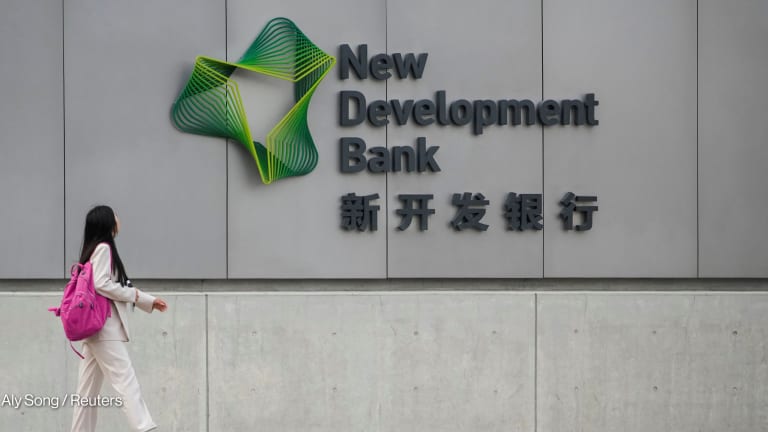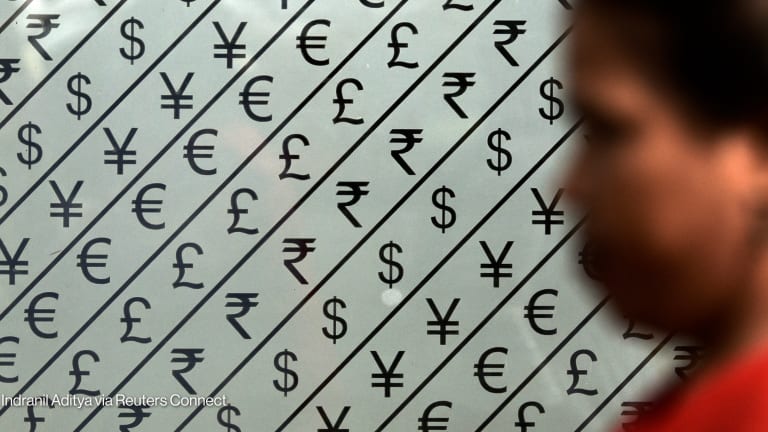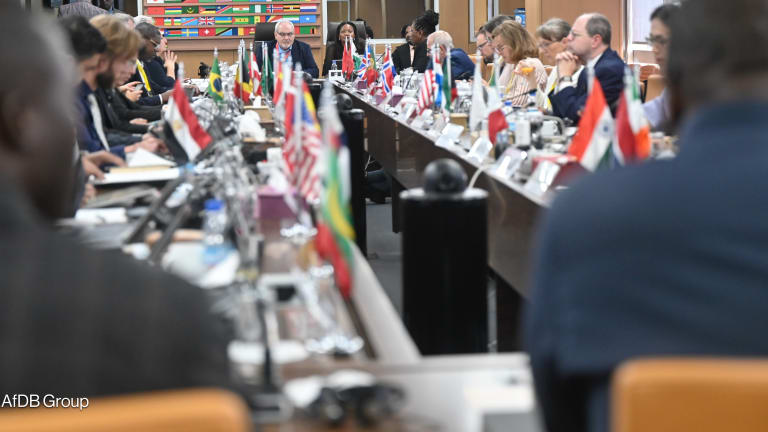The African Development Bank releases a quarterly operational summary, or QOS, that includes detailed information of projects in the bank’s pipeline for funding deliberations — think of it as similar to the World Bank’s monthly operational summary. This helps key stakeholders to understand the future funding trends for the bank’s regional member countries. Devex has monitored the QOS since 2018, presenting a comprehensive analysis of the bank’s early project cycle. This article will help you gain a better understanding of the QOS and how you can easily navigate it with Devex’s funding search and interactive visualization. First, some important notes If you’re already familiar with the nature of the QOS and AfDB’s project cycle, scroll straight down to the section on “Navigating the QOS with Devex.” If you’d like more background information first, read on. QOS reports are published through the bank’s website and the United Nations Development Business website. While the QOS is supposed to be a quarterly publication, it doesn’t always work out like that. For instance, only one QOS was released each year from 2018 to 2019, while three reports were published in 2020. In addition, most of the information about the projects is written in French, and the project budgets are provided in “Units of Account,” or UA, the official currency for AfDB projects. The exchange rate to U.S. dollars and other currencies is available within the report. The report shows information about the projects as they approach the pipeline and pass the project preparation cycle. It includes approved financing during the last six months and financing that is expected to be submitted to the board for approval during the next six months. This can help contractors prepare for procurement opportunities. Lastly, the QOS is divided into two parts: Projects being considered for possible financing are tagged as “new projects,” while those ready for implementation are tagged as “approved projects.” Projects may also be dropped without prior notice. Stages of the project cycle There are nine stages in AfDB’s project cycle, which can be used as a reliable reference for tracking projects: The stages are: Project identification. A regional member country, together with AfDB, identifies its medium- and long-term strategies and operational programs in their country strategy paper. This is aligned with a country’s own development and poverty-reduction plans and goals. Project preparation. With the help of data, documents, studies, and other information available both internally and externally, the bank will appraise the project. The bank’s experts will also review its relevance to the country strategy paper. Project appraisal. Project feasibility is examined through an appraisal mission, which is a consultation of the different stakeholders involved. Loan negotiation. A draft proposal will be submitted to all parties after the Senior Management Committee recommends the project for board approval. Negotiation begins when feedback from all parties is collected. Board approval. After negotiation, the loan proposal will be submitted to the board of directors. Once approved, a report — also known as a board resolution — will be posted online, along with related documents. Loan signing. At this stage, the document is sent to the recipient government for authorization. Loan effectiveness. The loan takes effect once agreed conditions are met. Implementation. This stage starts when a project is declared effective. The projects are implemented by executing agencies and supervised by the bank. Post evaluation. AfDB will prepare a project completion report or technical assistance completion report after the project and technical assistance activities are completed. They are prepared 12-24 months from the completion of the project. Navigating the QOS with Devex Devex Pro Funding members can explore the latest projects in AfDB’s QOS in Devex’s funding search. In addition, our interactive visualization breaks down the pipeline data by country and sector, and it provides details on the pipeline size and total number of projects. <div class='tableauPlaceholder' id='viz1622771144964' style='position: relative'><noscript><a href='#'><img alt='Summary ' src='https://public.tableau.com/static/images/Af/AfDBProjectPipeline/Summary/1_rss.png' style='border: none' /></a></noscript><object class='tableauViz' style='display:none;'><param name='host_url' value='https%3A%2F%2Fpublic.tableau.com%2F' /> <param name='embed_code_version' value='3' /> <param name='site_root' value='' /><param name='name' value='AfDBProjectPipeline/Summary' /><param name='tabs' value='no' /><param name='toolbar' value='yes' /><param name='static_image' value='https://public.tableau.com/static/images/Af/AfDBProjectPipeline/Summary/1.png' /> <param name='animate_transition' value='yes' /><param name='display_static_image' value='yes' /><param name='display_spinner' value='yes' /><param name='display_overlay' value='yes' /><param name='display_count' value='yes' /><param name='language' value='en-US' /></object></div> <script type='text/javascript'> var divElement = document.getElementById('viz1622771144964'); var vizElement = divElement.getElementsByTagName('object')[0]; if ( divElement.offsetWidth > 800 ) { vizElement.style.width='600px';vizElement.style.height='1027px';} else if ( divElement.offsetWidth > 500 ) { vizElement.style.width='600px';vizElement.style.height='1027px';} else { vizElement.style.width='100%';vizElement.style.height='1227px';} var scriptElement = document.createElement('script'); scriptElement.src = 'https://public.tableau.com/javascripts/api/viz_v1.js'; vizElement.parentNode.insertBefore(scriptElement, vizElement); </script> <i style=font-style: georgia;”>Interactive dashboard of African Development Bank pipeline humanitarian funding and international development projects. Via Tableau.</i> Quarterly operational summary analysis Here, we offer a brief overview of the QOS from 2019 onward. This article is updated after the release of each new QOS. To help you navigate the projects, each analysis is linked to Devex’s funding search for that quarter. 2021 Analysis June 2021 AfDB released its operational summary for the second quarter of 2021 in August. The pipeline is worth a total of $18 billion for 163 projects across 48 countries in Africa. The funding decreased by 10% from the previous quarter, considering Cameroon, Sierra Leone, and Togo were not included in the funding allocation for this period. There was a slight increase in the total number of newly identified projects in the second quarter with 49 projects worth $2.6 billion. Nigeria had the largest funding allocation for new projects worth almost $500 million, in which $134 million was allocated for a bank regional trade finance support facility project. This is followed by Côte d'Ivoire with $448 million for social sector projects, and Egypt with $333 million for agriculture and energy projects. As for approved projects that are ready to leave the pipeline, there was a 16% decrease in the number of projects which accounted for $15 billion. Angola tops the list of recently approved projects with $1.6 billion, including a $1 billion agriculture project on emergency food and nutrition security. Rwanda follows with $1.5 billion for projects in the agriculture and energy sector, including $1.2 billion funding for the meat value chain trade competitiveness project. In terms of overall sector funding, agriculture received $2.5 billion for four projects, with Rwanda leading the recipient countries. The energy sector follows with $2.3 billion for 14 projects, with Zimbabwe getting top funding worth $714 million for the disaster risk financing capacity building program. The transport sector includes $2.2 billion for 10 projects, with Tanzania taking the lead through a $558 million allocation for a coastal corridor development project. January 2021 The first quarter of AfDB’s QOS is worth a total of $20 billion for 179 projects across 50 countries in Africa — 43 projects worth $3 billion were newly added and 136 projects worth $17 billion were approved. Among the new projects, Cameroon received the largest chunk of loan worth $912 million for two projects — $729 million to improve skills and competitiveness in the transport and energy sector in the country and $183 million for the road development that will open the Industrial and Port Zone of Kribi (PAR-ZIK). Nigeria followed at $746 million for seven new projects, which includes a $205 million to boost the agro-processing capacity through the establishment of the Special Agro-Industry Processing Zones. Gabon, Libya, and Ethiopia were also among the most funded countries with a combined funding of $648 million for five new projects that ranged from agriculture, communications, to finance. Multi-sector new projects dominated this quarter, receiving $1 billion for six programs. Agriculture and rural development ranked second at $780 million for 10 new projects, with the biggest worth $245 million to improve food systems in Libya through digital technologies. Other agricultural projects include $71 million to train youth in Benin and $85 million for rural development in Morocco. Meanwhile, transport received $319 million for three new projects: road development in Cameroon; $85 million to upgrade roads in Uganda; and $51 million for the cable car transit system in Nigeria Among the approved projects, Rwanda recorded the biggest overall funding worth $2.1 billion. The Meat Value Chain Trade Competitive Project worth $1.1 billion was approved in June 2020 and got the highest approved contribution overall. The project will be implemented by the Ministry of Trade and Industry. Angola, Morocco, South Africa, and Tanzania also received a significant allocation for 17 approved projects, worth $5.3 billion in total. Most of the approved projects this quarter will be implemented by local government agencies and ministries. 2019 to 2020 analysis Click here to see a more detailed quarterly analysis for the 2019 and 2020 project pipelines. For access to in-depth analysis, insights, and funding opportunities from over 850+ sources — combined with Devex Pro news content — sign up for a Pro Funding subscription online today or get in touch to learn about our Pro Funding group options.
The African Development Bank releases a quarterly operational summary, or QOS, that includes detailed information of projects in the bank’s pipeline for funding deliberations — think of it as similar to the World Bank’s monthly operational summary. This helps key stakeholders to understand the future funding trends for the bank’s regional member countries.
Devex has monitored the QOS since 2018, presenting a comprehensive analysis of the bank’s early project cycle. This article will help you gain a better understanding of the QOS and how you can easily navigate it with Devex’s funding search and interactive visualization.
If you’re already familiar with the nature of the QOS and AfDB’s project cycle, scroll straight down to the section on “Navigating the QOS with Devex.” If you’d like more background information first, read on.
This story is forDevex Promembers
Unlock this story now with a 15-day free trial of Devex Pro.
With a Devex Pro subscription you'll get access to deeper analysis and exclusive insights from our reporters and analysts.
Start my free trialRequest a group subscription Printing articles to share with others is a breach of our terms and conditions and copyright policy. Please use the sharing options on the left side of the article. Devex Pro members may share up to 10 articles per month using the Pro share tool ( ).
Janadale Leene Coralde works as a contributing analyst for Devex. Based in Manila she reports on development donors activities and designs funding data visualisations. She has a degree in political economy, specializing in international relations and development, and has previously worked as a researcher for Chemonics, the REID foundation, and the Philippines House of Representatives.
Miguel Tamonan is a Senior Development Analyst at Devex, where he analyzes data from public and private donors to produce content and special reports for Pro and Pro Funding readers. He has a bachelor’s degree in Political Science with a Major in International Relations from the Polytechnic University of the Philippines.









